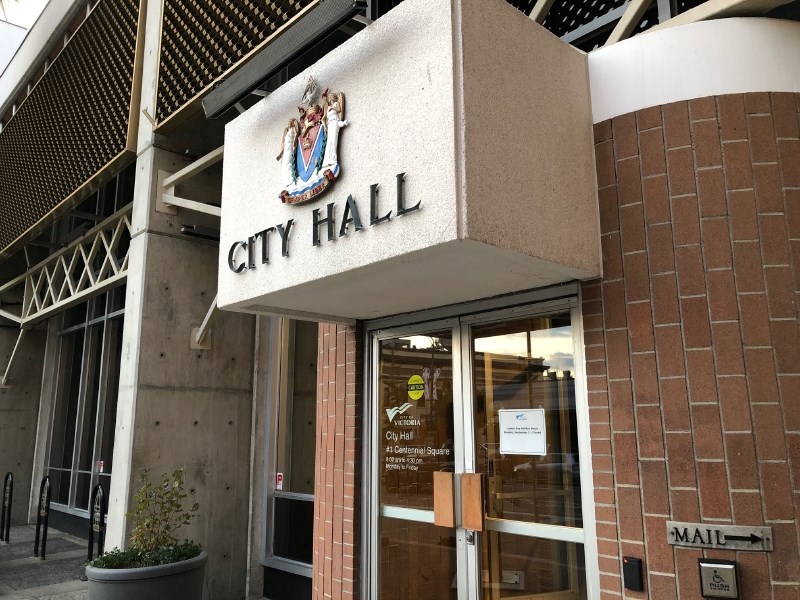The City of Victoria is checking with taxpayers to see whether they would support a more than 50 per cent increase in salary and benefits for councillors.
In an online budget survey, the city asks whether respondents agree with increasing councillors’ remuneration to $70,100 a year — the same as the median income of a city employee, excluding police officers and firefighters.
“This would result in an increase of approximately $25,700 per councillor annually,” the question says.
The increases for each councillor would cost the city about $205,600 a year, the survey says.
Statistics Canada reports that the median total income in Greater Victoria was $40,500 in 2017.
Councillors are currently paid $45,384 with an annual increase tied to inflation. The figures in the survey are rounded, so they do not align precisely with councillors’ actual pay, city staff say.
There is no mention in the survey of altering the pay for Mayor Lisa Helps, who is paid $113,461 annually.
The survey question stems from Coun. Ben Isitt’s motion — approved by council last month — that asked city staff to investigate the costs associated with paying councillors the same as the median income of a city employee. An amendment to the motion directed staff to get the public’s feedback on the matter during the budget process.
“The city hasn’t reviewed council remuneration for more than a decade,” Isitt said in an interview Thursday.
“The demands on council members’ time is certainly increasing [to] anywhere from 40 to 60 hours a week.
“It strikes me that if we want to attract professionals and others, and not just have very wealthy people serve on council, I think we do have to set the compensation at a level that younger people wouldn’t see it as a huge penalty if they’re going to take some time out of their career.
“And, unlike other municipalities in the region, you can’t have an ordinary job and be a council member [in Victoria]. This week, we have three days of meetings and that’s very regular.”
Isitt said once the public has commented, the issue will come back to council for a discussion.
He noted previously that council could choose to appoint a citizens’ committee or hire an independent consultant to do a comparative review of councillors’ pay.
Current salaries were set in 2009 based on recommendations from a citizens’ committee.
Coun. Charlayne Thornton-Joe said in an interview Thursday that she has concerns about the size of the increase outlined in the budget survey, and she’s glad council decided to get the public’s feedback.
She noted the survey is a preliminary step that will be followed by debate at the council table. “We’re not there yet and there’ll be a lot of discussions on whether there’ll be an independent group looking at [it].”
Thornton-Joe said she’s adamant that whatever council decides, any changes should apply to the next council, “so that we’re not voting for our own increase.”
She said that, if it’s decided at some point to pay councillors for full-time work, there should be a requirement for them to put in those hours.
“I think if it goes to full-time hours, there has to be some expectation that all of us do full-time hours, which means that you shouldn’t be able to do another part-time job.”
Thornton-Joe agreed that it can be challenging to attract people to serve on council given the pay level, long hours, evening and weekend work, and the large amount of correspondence that councillors receive.
“[It’s] definitely more than full-time [work],” she said.
Anyone wishing to express an opinion on councillors’ pay or other budget issues can take the online survey until Nov. 24 at victoria.ca. The city’s draft budget documents are available on the site.
In addition, people can take part in a Budget Town Hall meeting at city hall on Nov. 21, beginning at 6:30 p.m. During the meeting, city officials will accept comments in person, online, by telephone or by way of social media.
Youth can participate in budget discussions that same evening from 6 p.m. to 8:30 p.m. at the Quadra Village Community Centre, 901 Kings Rd.
People can also provide feedback by sending an email to [email protected] with “Feedback on the Draft 2020 Budget” in the subject line.



